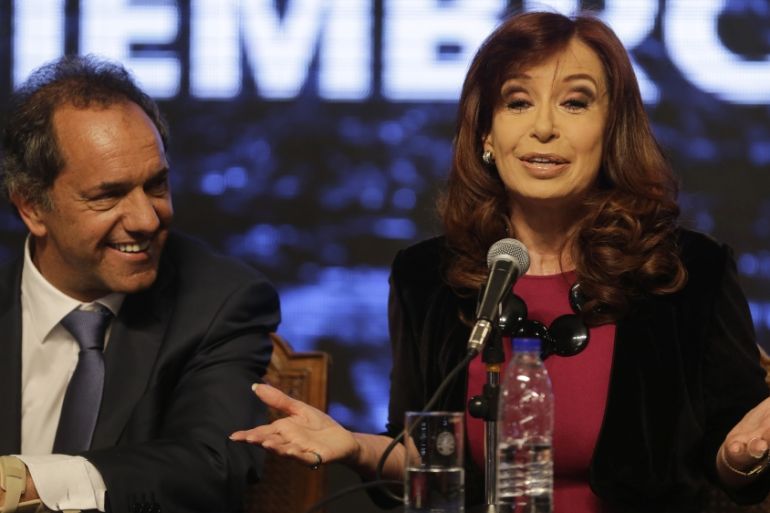Argentina bids farewell to ‘Kirchnerismo’
Confrontational President Kirchner’s legacy includes boosting the economy and human rights while polarising the nation.

The end of an era…
That’s how many here see the presidential elections. After 12 years of “Kirchnerismo”, it’s time for a change in Argentina.
Keep reading
list of 4 itemsA flash flood and a quiet sale highlight India’s Sikkim’s hydro problems
Ruling HDZ party wins most seats, but no majority in Croatia election
Croatians vote in election pitting the PM against the country’s president
“Enough of confrontation, enough of polarisation. We need things to be calmer for a while,” Susana Fleitas told me on the street.
Confrontation is one of the issues that upsets many Argentineans. The ‘with us or against us’ message has polarised society here and divided friends, neighbours and families.
|
|
| Drug crime a major issue ahead of elections |
President Cristina Kirchner defends her government almost daily on TV broadcasts, while attacking those who oppose her and belittling citizens who don’t support many of her policies. It is her way or the highway, people say, and many don’t like it.
She’s still highly popular, though, and many do like her style. But that’s one big change we will see in this country after the election.
Daniel Scioli is the Frente para la Victoria (Front for Victory) ruling party’s candidate because Kirchner is barred from running a third time.
He has a different approach to politics. He is less emotional and less confrontational. Many describe him as grey.
The other candidates, Mauricio Macri, from the centre right and Sergio Massa are also more drawn towards consensus than confrontation.
Economic comparisons
Nestor Kirchner came to power in 2003 when the country was still recovering from a devastating economic crisis. His wife Cristina succeeded him and has ruled this country for eight years.
I remember Argentina then, with poverty rates as high as 50 percent, people struggling to get jobs, the institutions devastated.
“The government is always comparing what is happening today with what happened in 2001. There is no doubt we are better off. But if we compare the last four years with a zero growth rate then that’s another issue,” Rosendo Fraga, an analyst in Buenos Aires, told me.
|
|
| Economy at heart of Argentina’s elections |
The government refers to the 12 years since Kirchnerism has been in power as the won decade.
Argentina recovered from the crises, thanks in part to the high prices of commodities, human rights abusers during the dictatorship standing trial, same-sex marriage being approved, and all sorts of programmes to promote inclusion having launched.
But in the last four years, the economy has slowed down. Inflation rates are among the highest in the world and not everything is as ideal as the government would like to say. The government has manipulated statistics; it’s impossible to have an idea about official poverty rates or inflation.
So whoever comes next will have to deal with many challenges, among them a complicated economic scenario and US based hedge funds that demand full payment of Argentina’s foreign debt. The candidates will pick one model or the other.
But it’s the leadership style, the way of governing, that will probably be very different in the coming years.